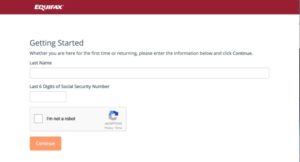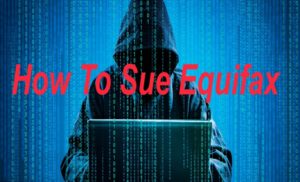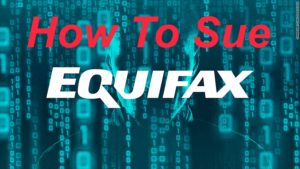class action suit against equifax 2019
Here Is How To Sue Equifax
If you are wondering how to sue Equifax, you have come to the right place. Equifax’s data breach incident has most of its clients thinking about a lawsuit against the company. There are many options available to you in case you are planning to sue Equifax – such as representing yourself in a small claims court, hiring a lawyer to represent your case, or joining a class-action lawsuit like thousands of other clients out there. In fact, there are numerous ways that you can take your frustration about the data breach incident to courts. This article provides information on how to sue Equifax.
If you plan to sue the company personally, the small claims court is your best bet. Filling out the legal paperwork can be quite daunting to a client who isn’t a lawyer or who don’t plan to hire one. On the other hand, if you don’t have a tangible injury to show after the data breach incident of the company, hiring your individual lawyer won’t be worth your time and money in the long run. A class-action lawsuit is designed for cases just like yours. In fact, a class-action will allow attorneys to sue the company on behalf of a class of thousands or millions of plaintiffs. A class-action lawsuit is specifically designed for cases like this – such as when a company’s actions have harmed a large group of people in such a way that could be minor for the individual client but serious collectively. For example, as soon as the data breach incident of Equifax was revealed, attorneys began filing class-action lawsuits against the company. In fact, there are more than 50-odd cases pending today. That is why you should take advantage of class-action lawsuits if you are wondering how to sue Equifax.
Equifax’s liability can be enormous as per the legal experts in the country. In fact, the damage for violations of the Fair Credit Reporting Act is fixed at $1,000 per violation. When the amount is multiplied by the number of victims affected by the data breach incident of the company, it may literally put the company out of business. But past settlements for similar corporate data breach cases show that the amounts settled were far less than the stipulated amount. For example, the Target – retail giant – agreed to pay their clients $18.5-million after hackers stole information from more than 40 million credit and debit cards of company clients. The settlement is around 50 cents per stolen card. That is why it is important that you initiate a class-action lawsuit in case no tangible harm occurred to you due to the data breach incident of the company. When class-action lawsuits are settled by the company, plaintiff lawyers will reach out to the consumers in the group through mass mailing in most cases. That way you can claim your share of the proceeds. On the other hand, Equifax is able to identify the victims of the data breach incident directly from its records. You may even get a check in your mail from the company. One important thing to remember is that if a class-action lawsuit does lead to a payout, accepting such money may close off your rights to file an individual lawsuit in case you discover more serious harm later on.
Individual lawsuits against the company would be quite costly for most clients. Unless your identity was actually stolen as a result of the data breach – and you can prove that the theft hurt you financially – an individual lawsuit can be quite costly. Even in such cases, these lawsuits might be difficult to win at times. In fact, you need to prove that thieves have stolen your identity from Equifax and didn’t obtain the information any other way. On the other hand, Equifax may try to force the case into arbitration – which is another way of settling consumer disputes. That is why you shouldn’t go for an individual lawsuit against the company unless you are sure of winning the case. If not, you may end up wasting both your time and money in the long run.
The aforementioned article provides information on how you should sue Equifax for data breach.
My Client Sued Equifax and Won $8,000.
In 2017 Equifax disclosed that hackers stole the personal information of 147.7 million Americans from its servers.
My name is Lance Casey and I am a process server in California. As soon as the Equifax data breach was released, people started suing Equifax in small claims court. I also receive calls from people asking how to join the class action lawsuit against Equifax.
It took about six weeks for Equifax to publicly announcing the breach, during which time three executives sold nearly $2 million worth of the company’s shares.
Equifax and other big credit reporting agencies keep profiting off a business model that rewards their failure to protect personal information.
Inside the company, there have been major changes. Three weeks after the breach became public, Smith stepped down. The Securities and Exchange Commission charged a former Equifax executive with insider trading after he made millions selling shares before the public knew about the attack. Equifax also hired a new chief security officer.
But outside, the difference is hard to notice. It’s still unclear who was behind the hack. Security experts also aren’t aware how the stolen data has been used.
Equifax as a company hasn’t faced many consequences. In January, Democratic senators proposed a law that would require credit-reporting agencies to protect the data they’ve amassed and pay a fine if they’re hacked. The bill never went anywhere.
“One year after they publicly revealed the massive 2017 breach, Equifax and other big credit reporting agencies keep profiting off a business model that rewards their failure to protect personal information — and the Trump Administration and the Republican-controlled Congress have done nothing,” Sen. Elizabeth Warren, a Democrat from Massachusetts, said in a statement.
.
How To Sue Equifax In Small Claims Court
Christian Haigh Won $8000 In Small Claims Court In California.
Here is a breakdown of the damages he was awarded:
Cost of Credit monitoring (120 months at $30 per month) $3,600
Ongoing emotional distress, anxiety, concerns, and harassment $1,800
Punitive damages under 15 USC 1681 Section 616 for willful non-compliance with the requirements of the Fair Credit Reporting Act $2,500
Court costs $90
Total judgment: $7,990.

What is a Chatbot?
Chatbot lets you sue Equifax for up to $25,000 without a lawyer.
A chatbot is a computer application that will help you file a small claims action against Equifax. You enter information into the system and it will create your small claims forms for your jurisdiction.

Process Server
Legal Types of Attorney When a default option was served on a suspect, there are particular remedies they have to be able to have the

Do You Need Help to Sue Equifax?
If you were one of the more than 140 million people who was affected by the Equifax data breach, then you may be looking for

Why Are People Choosing to Sue Equifax?
You may have seen some news reports about people who are choosing to sue Equifax. The consumer credit reporting company is the subject of a

Why People are Opting to Sue Equifax
Last year, Equifax was subject to a data breach which affected more than 140 million users, making up around 44 percent of the population of

Sue Equifax For Security Breach
Months after the gigantic data breach by Equifax victims are still struggling to recover, despite promises from the company to help. Many victims have had

Millions of Americans Opting to Sue Equifax
Millions of Americans are opting to sue Equifax over a data breach which affected 44 percent of the population. The data of more than 140
How to Find Out If You Were Affected by the Equifax Hack?
If you have a U.S. Social Security number, you can see if your personal information has been impacted by clicking the “Am I Impacted” button below.
You can sue Equifax if your data was exposed – Here’s how
Step 1. Complete the small claims paperwork. You can have the form completed for you by Chatbox or find you local court forms.
Step 2. File your court forms with the small claims court and pay the filling fee.
Step 3. Serve your small claims paperwork to Equifax via their agent for service of process.
Step 4. Click Here > Call The Credit Pros and pay only for deleted credit items! (844) 583-5227
.
Chatbot lets you sue Equifax for up to $25,000 without a lawyer
We Serve Lawsuit Papers To Equifax via their agent for service of process nationwide. Click “Serve Now” to serve Equifax.
Have Questions on Service of Process To Equifax. Call Now! (800) 683-4769
How To Sue Equifax in My State
Alabama
Alaska
Arizona
Arkansas
California
Colorado
Connecticut
Delaware
Florida
Georgia
Hawaii
Idaho
Illinois
Indiana
Iowa
Kansas
Kentucky
Louisiana
Maine
Maryland
Massachusetts
Michigan
Minnesota
Mississippi
Missouri
Montana
Nebraska
Nevada
New Hampshire
New Jersey
New Mexico
New York
North Carolina
North Dakota
Ohio
Oklahoma
Oregon
Pennsylvania
Rhode Island
South Carolina
South Dakota
Tennessee
Texas
Utah
Vermont
Virginia
Washington
West Virginia
Wisconsin
Wyoming




